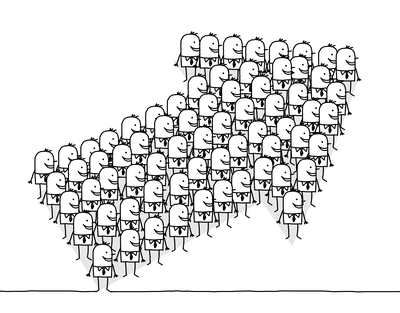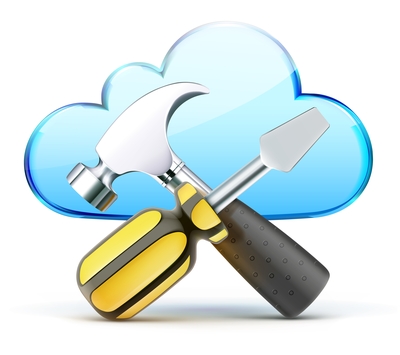Charles Seybold is a bit of a trend-setter in our book. When he makes statements like, “You are a project manager!” to someone who’s a marketing writer, we like to sit down and get the full story. As our Chief Product Officer, Charles co-founded and designed LiquidPlanner with a vision to transform how projects were managed among teams. We asked him about what the future of project management will look like – and how far we’ve come already.
LiquidPlanner: What makes you think that everyone will be a project manager?
Charles: Let’s start with a definition. Techopedia.com defines “Project Manager” as “the person responsible for leading a project from its inception to execution.” My definition is: “The art and science of delivering results.” Pretty much all of us are trying to do the latter. And technology is making it possible for everyone to achieve great results without having extensive project management training.
LP: How is project management changing?
Charles: Classic project management is essentially about trained project managers gaining control. For most projects, this model is inferior to using collaboration tools that live in the cloud. Empowering people on the front lines to make decisions and to take responsibility is more efficient, more engaging and produces fewer mistakes. When you have many minds aligned and they’re using better tools, this allows management to stop worrying about controlling projects and start focusing on optimizing projects.
LP: How do these changes affect teams and organizations?
Charles: Dramatically. It’s a big change, but it takes a big change to deliver dramatically different results. We all know that laptops work better with multiple cores, specifically; there are actually multiple computers inside your laptop working together to get more stuff done. Collaborative planning software affords organizations the ability to truly process multiple projects simultaneously without crashing the organization or grinding it to a halt. That’s exciting stuff. We routinely have customers tell us that switching to LiquidPlanner felt like boosting the team’s productivity by 30%-40%.
LP: How is the business mindset changing to accommodate this democratization of PMs?
Charles: We’ve become an input society. The old school mindset was that one’s influence was determined by the size of his or her paycheck. With the democratization of data and access to business information, that model is really being flipped on its head. Cloud-based software provides a way for organizations to communicate with each other and for natural business experts to participate equally. Social business collaboration provides a place for orders of magnitude and more ideas to live and breed.
LP: Do credentials matter in the new world?
Charles: There was a period of time where the concept of Six Sigma was all the rage and people would strive to become a Six Sigma black belt. Nowadays with highly collaborative and transparent tools for managing projects and other work, you don’t need to take courses to prove that. People just see that you know what you’re doing. There’s a clear incentive to do a good job because it’s visible to your organization. Social tools are rapidly increasing transparency and the secret society of governance is melting away in favor of the transparent community. This transparency helps align everyone’s interests around the organization’s goals.
LP: How do we combine traditional PM with today’s collaborative PM style?
Charles: What we learn from formal project management is that you want to have a plan. It’s good to think up front; it’s good to understand the requirements and have clear objectives; it’s good to identify risks; it’s good to communicate.
The most effective managers using LiquidPlanner are the ones that took the good parts of traditional project management (communication, risk evaluation) and threw away the bad parts (single point estimates, infrequent updates, rigid control). LiquidPlanner is an environment that captures and reflects the reality of projects so they can be managed, not some idealized yardstick used to beat up team members that run into unexpected headwinds.
LP: How is technology affecting this change?
Charles: Simple answer here: Cloud-based technology means that we can create large-scale, living project environments that are continuously updated and always reflect the latest, best picture of what the team has (or hasn’t) accomplished. The real trick is that 90% of project success is about execution – not planning. LiquidPlanner is focused on helping teams master this massive 90% opportunity. This is where the real productivity game is won or lost.
LP: How do the new project management tools affect productivity?
Charles: I can speak best to how LiquidPlanner approaches productivity. We created LiquidPlanner to tackle longstanding problems with traditional project management tools. To do this we needed to break the old rules and make some new ones.
- LP rule #1: Priority is the most important input to the project management process, so we built the system around that concept.
- LP rule #2: Uncertainty cannot be ignored if you want a realistic schedule, so we built the system around ranged estimates (best/worst case scenarios) and a probability-based scheduling engine.
- LP rule #3: Collaboration and status are inseparable from planning so we have tightly integrated the features of scheduling, tracking, collaboration, analytics and reporting into one environment that supports large portfolios of hundreds of projects and thousands of tasks.
LP: How is productivity affected when everyone is a PM of their own work?
Productivity is a hugely misunderstood concept. When it works right, the result is a productive culture across the organization. It simply becomes a habit to run projects well.
One might be surprised to learn that we have nobody with the title of “Project Manager” at LiquidPlanner, yet we’re very productive and manage dozens of major projects each year. We use LP to run most of the business and we have little rework, few false starts, and essentially no idle time. There’s no sweeping things under the carpet and we’re doing the right work efficiently. It’s just not that hard with a good system. Any team can get these results if they can adapt to the LiquidPlanner methodology.









